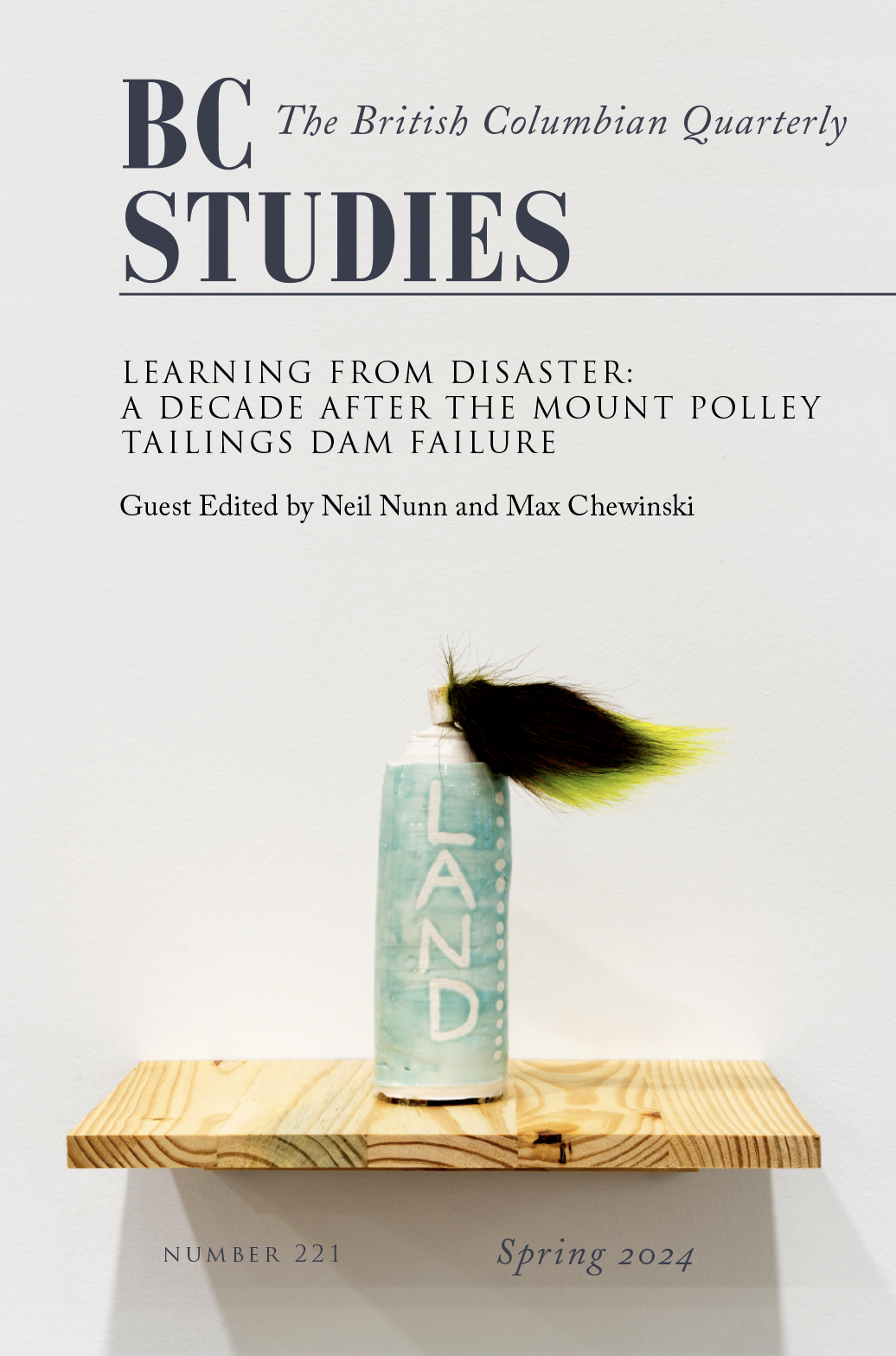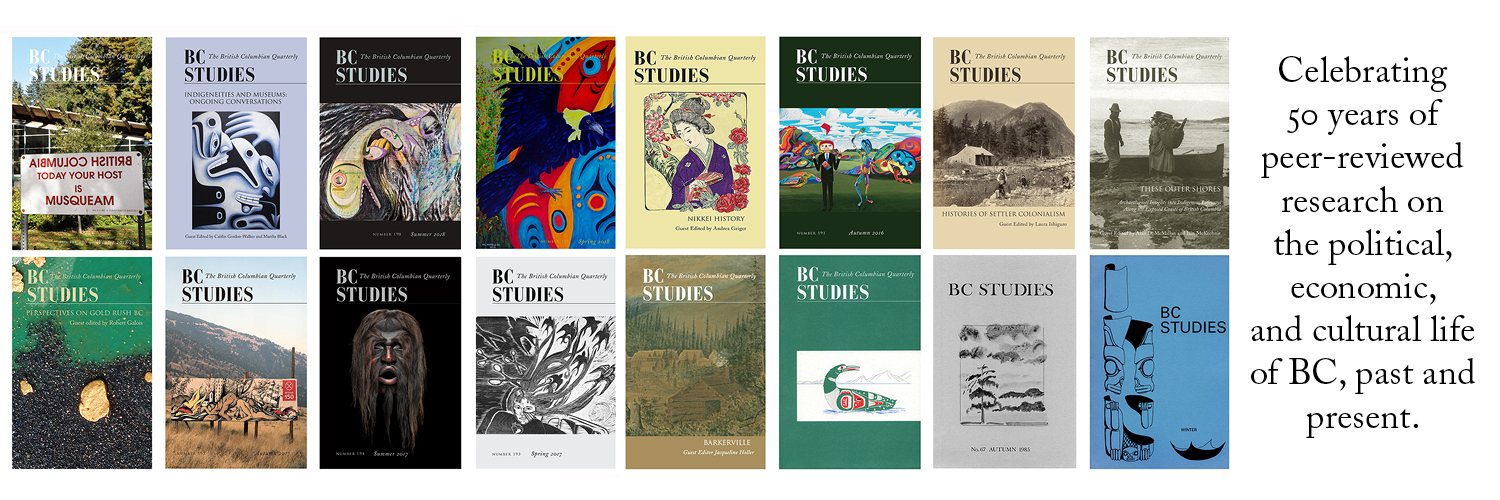Beyond Contentious Collective Action
Assessing Quiet Forms of Environmental Mobilization in Rural British Columbia
DOI:
https://doi.org/10.14288/bcs.no221.198580Keywords:
mining, Mount Polley Mine, disaster response, protest, letters and letter writingAbstract
Technological disasters often serve as catalysts for contentious collective action as affected communities seek accountability and better environmental regulation from responsible organizational and institutional actors. The 2014 Mount Polley mining disaster triggered Indigenous and Canada-wide mobilizations, but contentious collective action did not emerge among rural Quesnel Lake area residents located at the epicentre of the disaster. Drawing on an analysis of forty-two interviews and 208 newspaper articles, I show how rural Quesnel Lake area residents engaged in quiet forms of mobilization rooted in civic practices such as participating in consultations, writing letters to government and corporate officials, debating environmental risks through traditional news media, and establishing interest groups. I highlight how tactics associated with quiet mobilization changed across two critical environmental periods marked by the aftermath of the disaster itself (2014–15) and the introduction of Mount Polley’s wastewater plans (2016–19). Quiet mobilization in the first period included individual tactics such as letter-writing that were both critical and supportive of organizational responses to the disaster. Mobilization transformed in the second period to include a blend of individual and collective tactics that were decidedly critical and rooted in institutional forms of advocacy such as wastewater permit appeals. I argue that disregarding quiet forms of mobilization in favour of emphasizing contentious collective action neglects the crucial role of individual and collective tactics that characterize political participation in rural, working-class, and predominantly white settler communities. By shedding light on quiet mobilization, I contribute to a more comprehensive understanding of how rural residents in settler communities participate in addressing disasters and mounting environmental risks.



